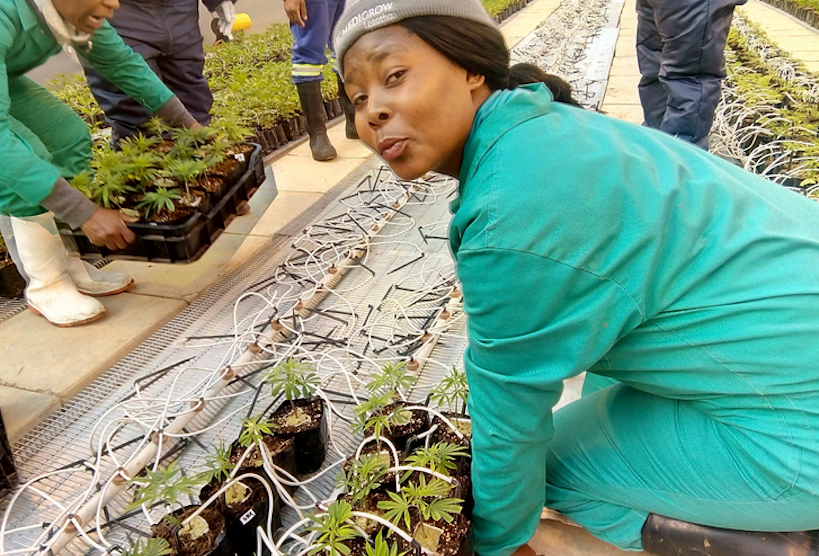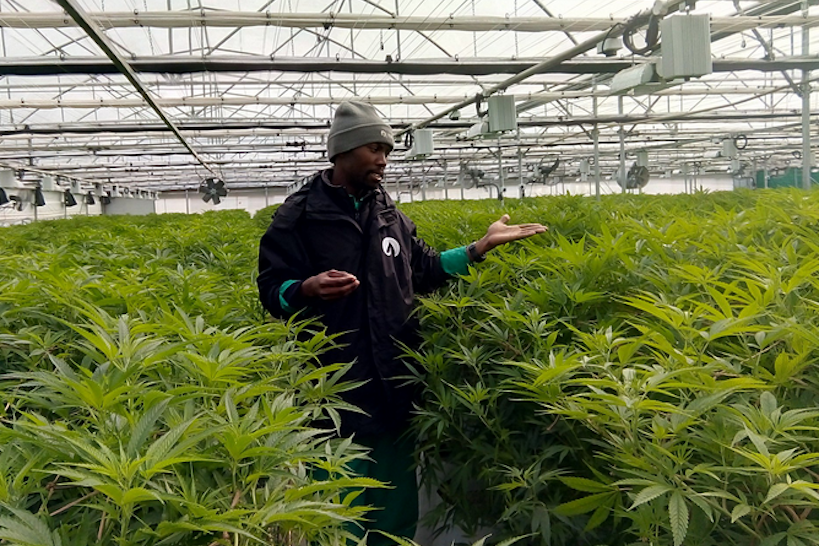Lesotho, a landlocked kingdom encircled by South Africa, is emerging as a hotspot for investment in cannabis crops since it became the first African nation to legalise the growth of cannabis for medicinal and research purposes in 2017.
Known as “the kingdom in the sky”, the high altitude combines with fertile soils for high-quality crops.
“While the formal cannabis industry is arguably still in its infancy, the kingdom could unlock even more foreign investment over the next few years,” says Jee-A van der Linde, an economist at NKC African Economics. “This, in turn, could lead to more job creation and assist in diversifying the economy.”
Masello Sello, legal adviser at the health ministry, the department responsible for issuing licences, says: “We want to export finished products. So the plan is to cultivate and manufacture pharmaceutical products, nutritional products, cosmetics, and extraction of active pharmaceutical ingredients.”
The government of Lesotho has granted a number of international companies licences to grow, distribute and to export marijuana-based products.
Canadian investors attracted – especially, of course, by cheap labour costs – include the Toronto-based Supreme Cannabis Company, which has invested $10m in Medigrow Lesotho, giving it a 10% share of the business.

“We are already employing 400 people, and we are projected to increase our headcount to about 3,000 people,” says Medigrow Chief Operating Officer Lebo Liphotho.
“Traditionally the [marijuana] plant has been doing well in Lesotho, so obviously you’d want to put around a proper business structure to what has already been done naturally. Where we are, it’s also about 2,000m [6,561 ft] above sea level, which is a very good environment for the plant to produce high-quality CBD [cannabidiol] oil.”
All of the plants at the Medigrow farm have had THC bred out of them, Christo Moller, a grower at the facility says. “We are only after the medicine, green medicine.”
However, the government’s relationship with overseas investors is to the detriment of small-holder farmers, who cannot afford its prohibitive $10,000 growing licence.
Fruit farmer Mothiba Thamae was excited about potentially expanding his business through growing medicinal marijuana. “Since the government has legalised marijuana in Lesotho, we thought that maybe on a certain plot we can plant marijuana in order to diversify what we are producing, but it’s difficult to get a licence for people like us because the licence is expensive,” he says.
People like Mampho Thulo have been illicitly growing marijuana in her scenic village of Mapoteng for decades. “This is how we earn a living… [as] the few jobs that are available are for educated people. So we rely on marijuana because we don’t have an education,” she tells the BBC.
Despite the lifting of the restriction on growing medicinal marijuana, Ms Thulo’s work is still illegal. The threat of arrest does not deter the 48-year-old, who has five kids.
“My children are in school because of marijuana. When I sell some, I’m then able to pay school fees.”
She is sometime raided by police and when it comes to selling, she is at the mercy of the smugglers who offer only a fraction of what her produce is worth.
“They are the ones who set the price, because they know we are desperate. The buyer will say I will take $36 [for a 50kg sack]. I’m hungry, I don’t have food, the house is empty. I’ll usually take it for that amount.”
Ms Thulo will not be able to take advantage of the recent changes in her country. “This is all I know. There’s no other way I could earn a living.”




